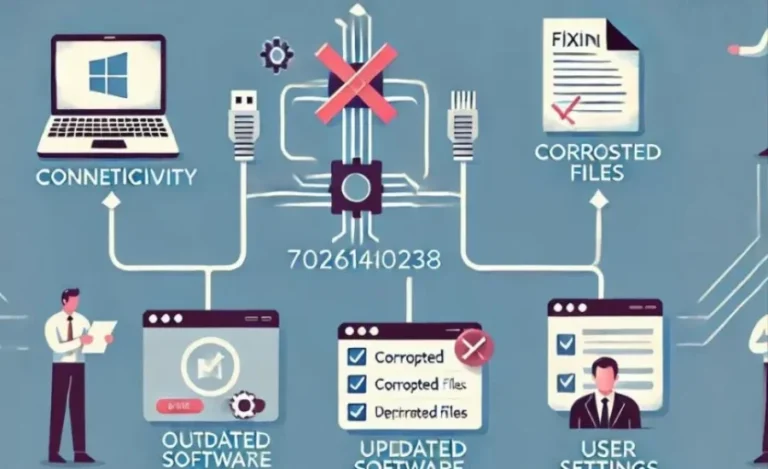The Importance of Precision: The Correct Spelling is School Not School. Some Pe – Tymoff
In education and communication, spelling accuracy plays a crucial role in conveying messages clearly and professionally. The phrase, The Correct Spelling is School Not School. Some Pe – Tymoff underscores the often-overlooked importance of precision in spelling. This guide delves into why correct spelling, particularly of words like “school,” matters, explores common spelling mistakes, and offers practical strategies to enhance spelling accuracy.
Spelling errors may seem minor but can lead to misunderstandings, undermine credibility, and impact the overall quality of communication. By mastering proper spelling, individuals can significantly improve their written communication skills, ensuring clarity and fostering trust in both academic and professional settings. Additionally, understanding the broader implications of linguistic precision can help prevent the negative effects that come with frequent spelling mistakes.
Effective communication demands attention to detail, and spelling is a fundamental aspect of this. By honing spelling skills, individuals not only improve their writing but also strengthen their ability to communicate ideas effectively, leaving a lasting impression on their audience.
The Critical Role of Spelling in Effective Communication
Spelling is much more than a basic skill—it is essential for clear and effective communication. Correct spelling not only enhances readability but also minimizes the chances of misunderstanding. In both academic and professional environments, accurate spelling demonstrates attention to detail and shows respect for the reader. Even simple errors, such as misspelling the word “school,” can damage the credibility of your writing and lead to confusion.
The importance of getting it right—The Correct Spelling is School Not School. Some Pe – Tymoff—emphasizes the value of accuracy in spelling. Mastering proper spelling ensures that your communication remains clear, professional, and easily understood, which in turn supports a polished and credible image.
Understanding the Importance of Spelling Through Humor

At first glance, The phrase The Correct Spelling is School Not School. Some Pe – Tymoff may seem perplexing, but it cleverly highlights the importance of proper spelling in a humorous way. Here’s what it conveys:
The statement “the correct spelling is school not school” emphasizes the need to be precise, even with commonly used words like “school.” Repeating the word serves as a reminder that frequent or simple words are not exempt from spelling mistakes.
The nonsensical phrase “some pe – tymoff” humorously shows how errors can distort meaning, turning a sentence into something confusing or absurd. It illustrates how even minor spelling mistakes can severely impact the clarity of written communication.
By analyzing phrases like this, we come to understand the critical role spelling plays in ensuring clear, coherent, and professional writing. Accuracy in spelling is not just about avoiding mistakes but about maintaining the integrity and clarity of the message being conveyed.
Common Spelling Errors: Even Simple Words Aren’t Immune
Spelling mistakes can happen with any word, no matter how simple. Even a basic word like “school” can fall victim to common errors. These include:
Typographical errors: These occur when a finger slips on the keyboard, resulting in incorrect spelling. The phrase The Correct Spelling is School Not School. Some Pe – Tymoff demonstrates how even small typing mistakes can significantly change the meaning of a sentence.
Phonetic errors: Sometimes, spelling mistakes happen because a word is misheard or mispronounced. When the sound of a word like school is misunderstood, it can lead to spelling errors.
Autocorrect issues: While technology aims to help, autocorrect can introduce errors. Being familiar with the correct spelling ensures you catch these automated mistakes and correct them promptly.
By understanding these common errors, individuals can be more vigilant in their writing, ensuring clarity and professionalism in communication.
Effective Strategies for Improving Spelling Accuracy
To prevent errors like those seen in The Correct Spelling is School Not School. Some Pe – Tymoff adopting the right strategies is key to mastering spelling. Here are a few helpful approaches:
Regular practice: Consistently practicing spelling helps reinforce correct patterns and reduces the likelihood of mistakes over time.
Mnemonic devices: Using memory aids, such as rhymes or phrases, can help recall challenging spellings, especially for frequently misspelled words.
Extensive reading: Reading regularly exposes you to correctly spelled words in different contexts, naturally enhancing your spelling ability by familiarizing you with proper usage.
Spell check tools: While digital tools are useful for catching mistakes, it’s important to manually review their suggestions to ensure accuracy and context.
By incorporating these strategies, individuals can significantly improve their spelling skills, fostering clearer and more professional communication.
Effective Strategies for Educators to Address Spelling Errors

Educators play a vital role in helping students develop strong spelling skills, especially in their formative years. Early emphasis on accurate spelling is crucial since habits formed during childhood often persist into adulthood. Here are several strategies teachers can implement to help students avoid common spelling mistakes:
Incorporating spelling into daily lessons: Spelling should be woven into various subjects rather than taught in isolation. Integrating spelling exercises into reading, writing, science, and history lessons helps students understand its relevance across all areas of learning.
Using visual aids: Tools such as posters, flashcards, and interactive whiteboards can reinforce correct spelling. Displaying frequently misspelled words, like “school,” around the classroom offers a constant reminder and reinforces visual learning.
Encouraging regular writing practice: Writing frequently enables students to internalize correct spelling. Assigning creative writing projects, journaling, or daily writing exercises provides the practice needed to improve their spelling proficiency over time.
Giving constructive criticism: Rather than just highlighting faults, it’s critical to provide explanations and techniques for fixing spelling issues. Teachers should give students an explanation for a word’s spelling as well as tips on how to recall the correct spelling in the future.
Promoting a positive outlook on spelling: Students’ motivation can be greatly increased by fostering a positive outlook on spelling. Praise for their efforts and acknowledging little accomplishments might encourage kids to keep working confidently and enthusiastically to improve their spelling.
By implementing these strategies, educators can help students strengthen their spelling abilities, fostering clearer and more effective communication skills as they progress.
Mastering Spelling: Tips for Accuracy and Avoiding Common Mistakes

Spelling can be challenging, but regular practice is one of the best ways to improve. A helpful strategy is to create a list of frequently misspelled words and review them consistently. For example, remembering that the correct spelling is “school,” not “shcool,” helps prevent future errors.
Use mnemonic devices: Mnemonics are great tools for remembering difficult spellings. For instance, associating “School Has Cool Learning” can help you recall that “school” starts with “sch.” This technique is especially useful for words that are easy to mispronounce or confuse.
Technology and spelling: In today’s digital age, spell checkers are valuable for catching errors. However, while technology is helpful, it’s still important to understand why “school” is spelled correctly, rather than relying solely on automated corrections. Use spell check as a backup tool, not a substitute for knowledge.
Educational apps: Many educational apps make learning spelling fun and interactive through games and exercises. These tools can help users avoid common mistakes and practice correct spelling, like with the word “school.”
By incorporating these strategies, spelling can become more manageable, allowing for clearer and more effective communication.
Final Words
Spelling plays a crucial role in communication, and even simple words like “school” can be spelled incorrectly if not given attention. The phrase The Correct Spelling is School Not School. Some Pe – Tymoff humorously highlights how small errors can alter meaning and lead to confusion. This underscores the importance of accurate spelling, which helps ensure clarity and professionalism in written communication.
Educators, writers, and professionals alike must focus on spelling precision. Errors, whether caused by typos, phonetic confusion, or autocorrect, can weaken the quality of communication. Understanding and practicing correct spelling habits from an early age is essential for avoiding these mistakes.
By promoting spelling accuracy, individuals not only enhance their writing skills but also improve the overall effectiveness of their communication. Whether in school or professional environments, correct spelling remains a foundational element of clear and reliable writing.
Frequently Asked Questions About Spelling
Q1: Can “scool” be used in casual contexts?
Ans: While “scool” might be understood in informal settings, it’s always recommended to use the correct spelling, “school.” Proper spelling ensures clarity and avoids any potential misunderstandings, regardless of the context.
Q2: Are there other words with unusual spellings like “school”?
Ans: Absolutely! The English language is full of surprises. Many words, such as “through,” “though,” and “thought,” sound similar but have distinct spellings and meanings. It’s important to learn and recognize these differences to avoid confusion.
Q3: How can I improve my spelling?
Ans: You can improve your spelling by using educational apps, online resources, and reading regularly. Exposure to correct word usage helps develop your spelling skills over time.
Q4: What are some ways to improve spelling outside the classroom?
Ans: You can enhance your spelling by practicing with commonly misspelled words, using spelling tools, and seeking feedback from peers or teachers. Regular practice outside the classroom is key to improvement.
For more information and updates join us on Latest Drift.






